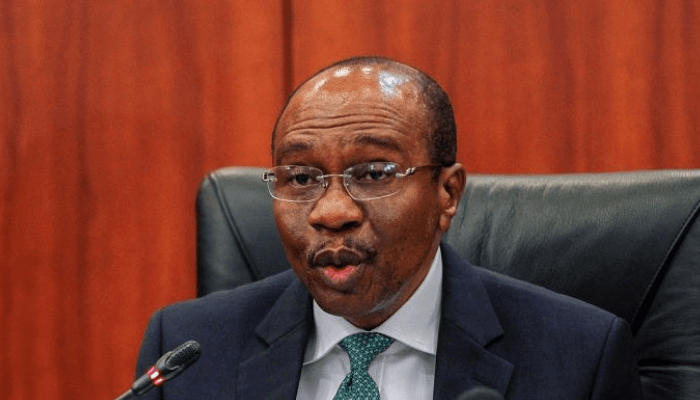Godwin Emefiele who was until last night the substantive governor of Nigeria’s central is arguably the most controversial occupant of the exalted position.
Although he did not betray his unorthodox instincts early, but he fought against both local and foreign investor groups in fierce battles.
The former chief executive of Zenith Bank Plc took up his post at the Central Bank of Nigeria in June 2014, a year before President Muhammadu Buhari came to power.
He was controversially reappointed for a second five-year term in May 2019 that was due to end in June 2024.
The governor was one of the most influential members of Buhari’s government during which the central bank made significant interventions in the economy, including propping up the naira, lending unprecedented sums to the government and extending credit to multiple sectors.
Critics slammed the central bank governor for undue attention to development finance and excessive regulation of banks at the expense of price stability.
The lion’s share of a 1 trillion-naira ($2.1-billion) loan it extended to rice farmers, under so-called Anchor Borrowing Programme, was not repaid.
He also came under fire for subjecting banks to contradictory regulation.
For instance, whereas lenders must hold 32.5% of deposits as reserves — far more than their counterparts in South Africa and Kenya, as the regulator battles to contain inflation — banks are being forced to extend 65% of their deposits as loans to stimulate credit.
The central bank governor also left interest rate unchanged, well below the annual inflation rate for too long, critics contend.
When the bank began to tighten last May it was unable to rein in consumer prices until they skyrocketed to an 18-year high of 22.% in April.
Emefiele even made a highly visible, if short-lived, foray into party politics in May when he asked a federal court to permit him to remain in charge of the CBN while seeking the ruling party’s nomination in presidential elections scheduled for next month. He dropped those ambitions after Buhari ordered ministers and political appointees wishing to run for office to resign.
His most most controversial move as central bank governor came just before Nigerian presidential elections, with his demonetization policy.
His attempt to replace old naira notes with new ones unexpectedly resulted in shortages, hobbling day-to-day business in the cash-dominant economy.
Politicians, including President Tinubu accused him of fostering the unpopular policy to damage his candidacy.
Some state governors challenged the policy in court and in a ruling, the Supreme Court nullified the Feb. 10 deadline set by the governor to phase out the old notes. It extended the deadline to year-end.
Folashodun Adebisi Shonubi, Deputy Governor, Operations Directorate since October 2018 will act in place of Emefiele.

Shonubi holds double Masters Degree respectively in Business Administration and Mechanical Engineering, from the University of Lagos. He is a resourceful banker with over 30 years professional experience.
Prior to his appointment as Deputy Governor in the Central Bank of Nigeria, he was the Managing Director/CEO in the Nigeria Inter-Bank Settlement System PLC from 2012 – 2018.
Before then, he was Managing Director of NIBSS PLC and also served as Executive Director, Information Technology and Operations at Union Bank of Nigeria Plc during which time he was a member of the Board of Union Homes.
He has also been a Director, Information Technology and Corporate Services at Renaissance Securities Nigeria Limited, with responsibility for the Group’s IT infrastructure in Africa
Between 1999 and 2007, he worked in MBC International as Deputy General Manager and supervised their IT operational platforms, served in First City Monument Bank Limited as Vice President and in Ecobank Nigeria Limited as Executive Director.
Shonubi also had a stint with Citibank Nigeria Limited as its Head, Treasury Operations (1990-1993).
He has served on a number of sub-committees of the Bankers’Committee, including the Ethics and Professionalism sub-committee.






